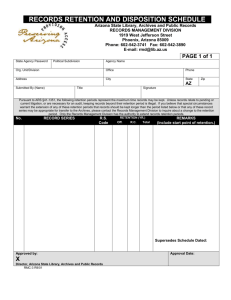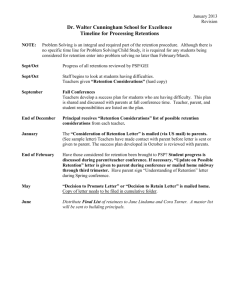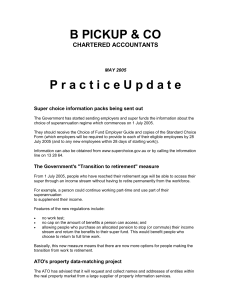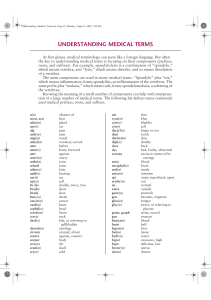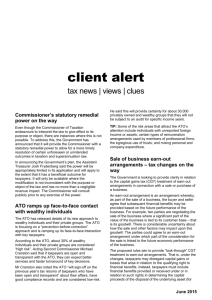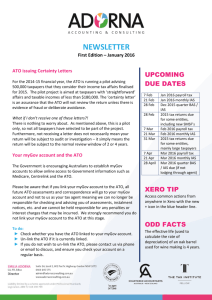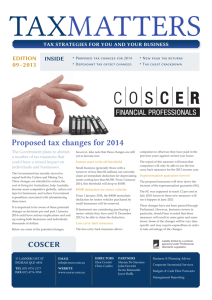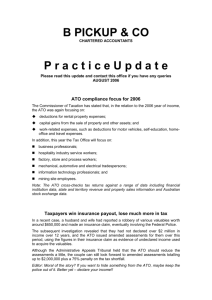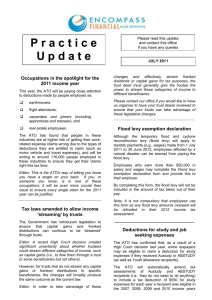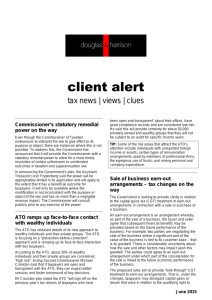Retaining Financial Records
advertisement
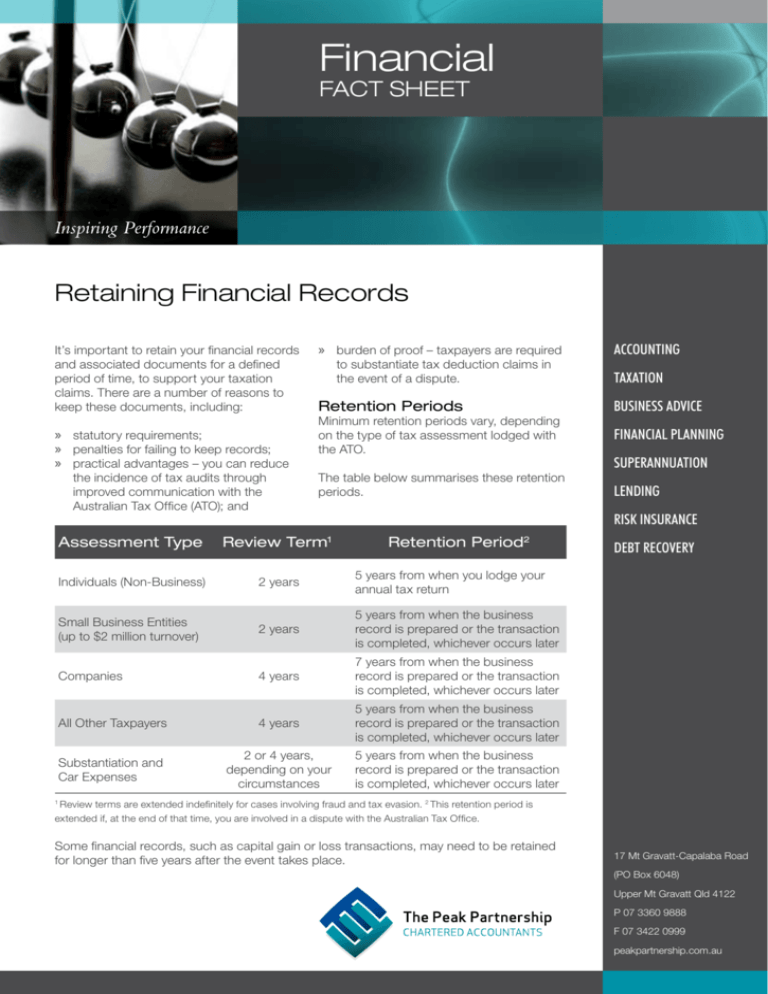
Financial FACT SHEET Retaining Financial Records It’s important to retain your financial records and associated documents for a defined period of time, to support your taxation claims. There are a number of reasons to keep these documents, including: » statutory requirements; » penalties for failing to keep records; » practical advantages – you can reduce the incidence of tax audits through improved communication with the Australian Tax Office (ATO); and » burden of proof – taxpayers are required to substantiate tax deduction claims in the event of a dispute. Retention Periods Minimum retention periods vary, depending on the type of tax assessment lodged with the ATO. The table below summarises these retention periods. ACCOUNTING TAXATION BUSINESS ADVICE FINANCIAL PLANNING SUPERANNUATION LENDING RISK INSURANCE Assessment Type Review Term Individuals (Non-Business) 2 years 5 years from when you lodge your annual tax return Small Business Entities (up to $2 million turnover) 2 years 5 years from when the business record is prepared or the transaction is completed, whichever occurs later Companies 4 years 7 years from when the business record is prepared or the transaction is completed, whichever occurs later All Other Taxpayers 4 years 5 years from when the business record is prepared or the transaction is completed, whichever occurs later Substantiation and Car Expenses 2 or 4 years, depending on your circumstances 5 years from when the business record is prepared or the transaction is completed, whichever occurs later 1 Retention Period 2 DEBT RECOVERY Review terms are extended indefinitely for cases involving fraud and tax evasion. 2 This retention period is extended if, at the end of that time, you are involved in a dispute with the Australian Tax Office. 1 Some financial records, such as capital gain or loss transactions, may need to be retained for longer than five years after the event takes place. 17 Mt Gravatt-Capalaba Road (PO Box 6048) Upper Mt Gravatt Qld 4122 P 07 3360 9888 F 07 3422 0999 peakpartnership.com.au Retaining Financial Records Types of Records The types of financial records and documentation you need to keep will also vary, depending on your type of assessment - ie. as an individual taxpayer, a small business or a company. However, these records may include financial statements, tax invoices, receipts, cash books, cheque butts, payment summaries, payslips, motor vehicle logbooks etc. Storing your Records Your financial records can be stored as paper copies and/or electronically, provided they meet certain legal requirements. Whether you use a manual or an electronic system, you may want to store and keep your paper records electronically. The ATO will accept the imaging of business paper records onto an electronic storage medium, provided the electronic copies are: » » » » a true and clear reproduction of the original paper records: not altered or manipulated once stored; kept for the prescribed period of time; and capable of being retrieved and read by the ATO at all times. You don’t have to keep original paper records once they have been imaged onto an electronic storage medium. If you want to clarify your record keeping responsibilities, simply contact your accountant at The Peak Partnership on 07 3360 9888. This Fact Sheet contains general advice that has been prepared without considering your objectives, financial situation or needs. You should consider the appropriateness of any advice before acting on it. Peak Partnership Pty Ltd ABN 24 064 723 550. Liability limited by a scheme approved under Professional Standards Legislation.

